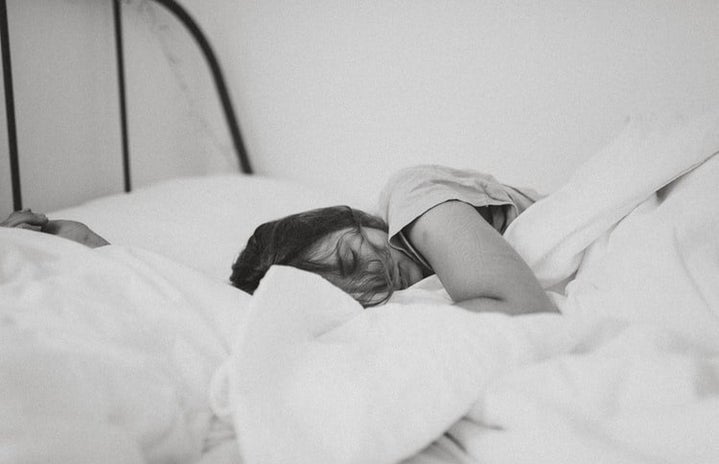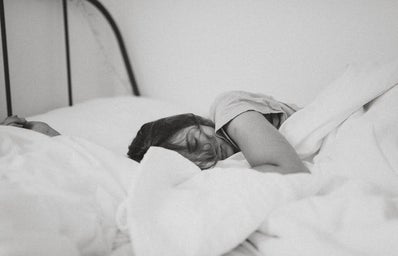The pandemic times in which we’re living turned our routines upside down – and, now, even our sleeping habits are suffering the consequences. The word “insomnia” was Googled more in 2020 than ever before. It is not by chance that specialists have created a technical term to designate this wave of non-chronic sleep disorders that has grown in recent months: the coronasomnia.
However, the fact is that dealing with sleeping disorders is a tough task during a period of social isolation or not – and we can’t ignore the aftereffects. In the long run, the lack of a good night of sleep can result in many damages to physical and mental health, such as decreased concentration, reduced productivity and changes in our daily mood.
But don’t panic: You can fix it! If you’re one of these persons who are struggling to sleep, keep reading. Here you’ll find some tips to disconnect from the chaos around you and have a better resting time, without needing to count sheep until the wee hours. Your princess’s sleeping nights thank you…
- Adopt A Sleeping Schedule
-
We know that binge-watching series till the dawn is the perfect program for a pandemic bohemian life. But this habit may not be cool for your weekly routine, much less in the long run. Stipulating a specific time to sleep is a great way to program your body and mind to “turn off”. So, you’ll condition yourself to relax when it’s getting closer to that hour and it’s going to be easier to fall asleep.
- Avoid Caffeinated Drinks And Heavy Food At Night
-
We’re trying to be relaxed here… So, coffee, black tea, soda and energy drinks are strictly not advisable! They are made up of stimulating substances which can stay in your bloodstream for 6 to 8 hours: and this will speed up your metabolism, making it difficult for you to fall asleep.
The same thing happens with food. Very caloric aliments make our body need to spend more energy to digest them – and if you sleep before that process of food absorption, your stomach won’t enjoy it very much… So, it’s recommended to avoid things like candies, beef, greasy and fried food, pasta and thermogenics, as cinnamon, ginger and pepper.
- Do Physical Activities In The Morning Or n The Afternoon
-
It is time to fight against laziness! Be it functional workout, yoga, dancing or walking: the most important thing is to keep moving, always! When you practice physical activities, you “force” your organism to act and consequently, at the end of the day, your body gets more tired and the desire to sleep comes naturally. But that’s not all: when you exercise, your body achieves a state of equilibrium (called “homeostasis”), decreasing muscle tension, anxiety and stress. All of this will help your night to be more calm and peaceful.
However, it is advisable that every physical effort be made in the morning or in the evening: never at night! Exercises are responsible for discharging many stimulating substances into our body, especially adrenaline, and this will make you feel more willing than relaxed. Therefore, try to practice a maximum of 6 hours before bed.
- Detach From Electronic Devices!
-
If you’re used to scroll your social media feed non-stop until falling asleep, stop it right now! One of the most famous mother’s scolds has a proven scientific basis. According to Leticia Maria Soster, neurologist and clinical neurophysiologist of Einstein’s Sleep Medicine, the light emitted by cell phones interferes in the production and secretion of melatonin. This is the hormone that signals to our brain that we need to rest and it is inhibited by the blue beam emitted by electronic devices – result: it takes even longer for you to sleep.
The ideal solution is to avoid using your cell phone, notebook or even watching TV at least 30 minutes before going to bed. Oh, and to prevent temptation once and for all, try not to keep your phone on at night. Put it, at least, in airplane and silent mode; this way, you won’t be surprised at night by an unwanted ring, nor will be tempted to get out of bed to read your new messages: the focus is to sleep!
- Create A Comfort And Relaxing Aura
-
Adopt a relaxing pre-sleep ritual! At night, take some time to selfcare! Reduce the intensity of your house’s lights and do only comfort activities. Take a warm bath about two hours before bed, for example, and it will help to lower your body temperature, helping to induce sleep. You can also do things like reading, painting, sewing, listening to calm songs, meditating and also listening to ASMRs or relaxing audios (if this helps you to concentrate on your own feelings and the needs of your body).
- Associate Your Bed With Sleeping
-
No more using your bed during the day to study, work, eat or anything! It is very important to set limits so that your body starts to associate the feeling of lying in bed with the act of sleeping. If you do this, your brain will understand that the time to be in bed is destined just for rest and will reduce your metabolism and your body’s hustle and bustle, preparing you for a good and relaxing night.
- Take Time To Organize Your Next Day
-
One of the biggest enemies of our sleep is our worries! Instead of spending the night thinking about everything you need to do, resolve or deal with in the following days, why not put it all out a few hours beforehand? A tip is to, about 4 hours before going to bed, write in a paper your concerns and all the future tasks which are disturbing your sleep. This will help you organize your ideas and have a broader view of everything you need to do – and will also make it easier to see that you will be able to handle everything!
- Don’t Fight Against Insomnia!
-
Looking at the clock once every 5 minutes will not help you sleep – on the contrary, it will make you feel even more anxious and agitated! If you can’t fall asleep, don’t stay laid in your bed (this will stress you even more). Get up and try to do a relaxing activity to calm your body. Then, lie back and try again.
Just a reminder! This article does not substitute professional care! All of the information above was taken from the websites of Hospital Sírio Libanês, Einstein Sleep Medicine and Dr. Drauzio Varella’s blog, and are tips to transform the moment of sleep into a more relaxing ritual – and for these comfortable moments there are no contraindications! So: Which one of these tips will you try to put on practice today?
———————————————–
The article above was edited by Laura Enchioglo.
Liked this type of content? Check Her Campus Casper Libero home page for more!


